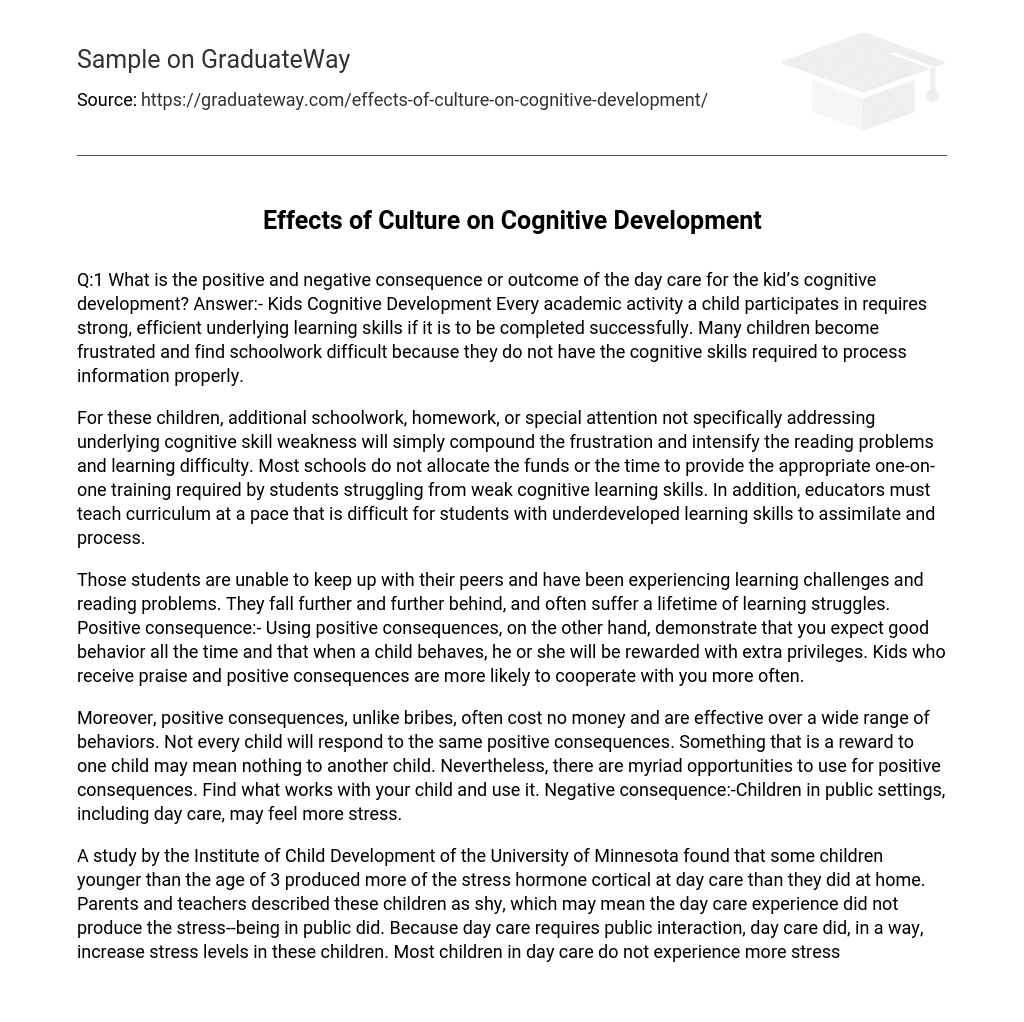Q:1 What is the positive and negative consequence or outcome of the day care for the kid’s cognitive development? Answer:- Kids Cognitive Development Every academic activity a child participates in requires strong, efficient underlying learning skills if it is to be completed successfully. Many children become frustrated and find schoolwork difficult because they do not have the cognitive skills required to process information properly.
For these children, additional schoolwork, homework, or special attention not specifically addressing underlying cognitive skill weakness will simply compound the frustration and intensify the reading problems and learning difficulty. Most schools do not allocate the funds or the time to provide the appropriate one-on-one training required by students struggling from weak cognitive learning skills. In addition, educators must teach curriculum at a pace that is difficult for students with underdeveloped learning skills to assimilate and process.
Those students are unable to keep up with their peers and have been experiencing learning challenges and reading problems. They fall further and further behind, and often suffer a lifetime of learning struggles. Positive consequence:- Using positive consequences, on the other hand, demonstrate that you expect good behavior all the time and that when a child behaves, he or she will be rewarded with extra privileges. Kids who receive praise and positive consequences are more likely to cooperate with you more often.
Moreover, positive consequences, unlike bribes, often cost no money and are effective over a wide range of behaviors. Not every child will respond to the same positive consequences. Something that is a reward to one child may mean nothing to another child. Nevertheless, there are myriad opportunities to use for positive consequences. Find what works with your child and use it. Negative consequence:-Children in public settings, including day care, may feel more stress.
A study by the Institute of Child Development of the University of Minnesota found that some children younger than the age of 3 produced more of the stress hormone cortical at day care than they did at home. Parents and teachers described these children as shy, which may mean the day care experience did not produce the stress–being in public did. Because day care requires public interaction, day care did, in a way, increase stress levels in these children. Most children in day care do not experience more stress





